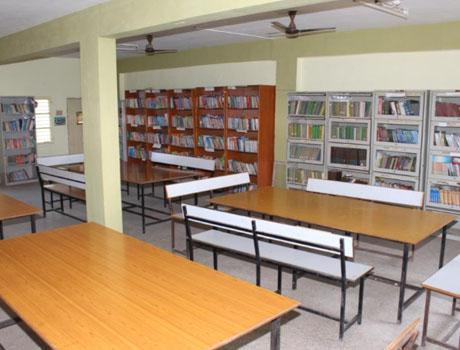Library
| Description | B.Ed | M.Ed |
|---|---|---|
| Encyclopaedias | 942 | 35 |
| Total No. of Titles | 778 | 666 |
| Total No. of Books | 2832 | 1698 |
| Educational Journals Subscribed for | 12 (Common for both courses) |

In a B.Ed (Bachelor of Education) college, the library is a vital resource center that supports the academic and research needs of students, faculty, and researchers. The library plays a crucial role in enhancing the learning experience and providing access to a diverse range of educational materials. Here are key features and components of a MNR B.Ed college library:
Book Collection:
The library houses a comprehensive collection of books related to education, teaching methodologies, psychology, curriculum development, and other relevant subjects.
Textbooks, reference books, and scholarly works contribute to the academic foundation of B.Ed students.
Journals and Periodicals:
Subscriptions to education-related journals and periodicals provide access to the latest research, trends, and discussions in the field of education.
Journals cover topics such as educational psychology, curriculum design, pedagogy, and educational technology.
Reference Section:
The reference section contains encyclopedias, dictionaries, handbooks, and other reference materials that students and faculty can consult for in-depth information and clarification.
Digital Resources:
Libraries in modern B.Ed colleges are equipped with computer terminals or a dedicated computer section, providing access to digital resources, e-books, and online databases.
Access to educational websites and digital repositories enhances research capabilities.
Librarian Assistance:
Professional librarians are available to assist students in locating resources, conducting research, and using library facilities effectively.
Librarians may also conduct workshops or sessions on information literacy and research skills.
Quiet Study Areas:
Designated quiet study areas provide students with a conducive environment for reading, studying, and conducting research.
These areas are equipped with comfortable seating, study tables, and adequate lighting.
Group Study Rooms:
Group study rooms may be available for collaborative learning and discussions among students.
These rooms may be equipped with audio-visual aids to support group projects and presentations.
Interlibrary Loan Services:
Collaboration with other libraries allows students and faculty to access resources not available in the college library through interlibrary loan services.
Thesis and Dissertation Section:
A section dedicated to theses, dissertations, and research projects provides students with examples of high-quality academic work and serves as a resource for research inspiration.
Online Catalog and Database Access:
An online catalog facilitates easy searching and locating of library resources, while access to databases supports academic research and literature reviews.
Libraries in B.Ed colleges are essential for fostering a culture of learning, research, and intellectual exploration. They contribute significantly to the academic development and success of students pursuing a career in education.
